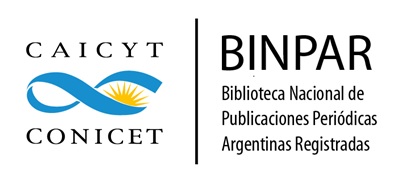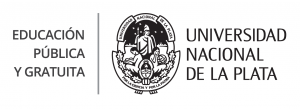Ética y perfil del investigador en el Grupo de Investigación en Extensión Universitaria (GINEx)
DOI:
https://doi.org/10.24215/18529569e002Palabras clave:
extensión universitaria, investigador, ética, perfilResumen
El desarrollo de este ensayo comprende dos partes: la primera, abo rda la ética del investigador en la extensión y en la investigación en extensión; la segunda, esboza una aproximación al perfil del investigador en extensión. El autor busca proporcionar un marco filosófico que sirva para avanzar en la discusión del tema propuesto, por lo que se trata de una primera aproximación que progresivamente dará respuesta a los interrogantes con los que se concluye.
Descargas
Citas
CANELONES, M. (2009). «Perfil del académico como extensionista desde una visión integradora». En Leal, N. (comp.). Educación a Distancia en la Universidad Nacional Abierta de Venezuela (pp. 365-380). Caracas, Venezuela: Universidad Nacional Abierta.
GURRÍA DI BELLA, M. (1995). Ética Profesional. El turismo como ejemplo. Bogotá, Colombia: Editorial Universidad Externado de Colombia.
GUTMANN, A. (1992). «Introducción a Charles Taylor». En Taylor, C. El multiculturalismo y la política del reconocimiento. Ciudad de México, México: Fondo de Cultura Económica.
HABERMAS, J. (1998a). Facticidad y validez. Sobre el derecho y el Estado democrático de derecho en términos de teoría del discurso. Madrid, España: Trotta.
HABERMAS, J. (1998b). Conciencia moral y acción comunicativa. Barcelona, España: Península.
HABERMAS, J. (1999). La inclusión del otro. Estudios de teoría política. Barcelona, España: Paidós.
HONNETH, A. (1997). La lucha por el reconocimiento. Barcelona, España: Crítica.
PÉREZ DE MAZA, T. (2015). El enfoque metodológico de trabajo del GINEx, por aproximaciones sucesivas, en el abordaje del proceso de investigación. Caracas, Venezuela: mimeo.
RODRÍGUEZ LUGO, E. (2013). Las perspectivas democráticas sobre el Estado Social de Derecho (Habermas y Taylor). Caracas, Venezuela: mimeo.
TAYLOR, C. (1994). La ética de la autenticidad. Barcelona, España: Paidós.
TAYLOR, C. (1996). Las fuentes del yo. La construcción de la identidad moderna. Barcelona, España: Paidós.
TAYLOR, C. (1997). Argumentos filosóficos. Ensayos sobre el conocimiento, el lenguaje y la modernidad. Barcelona, España: Paidós.
TAYLOR, C. (2001). El multiculturalismo y «la política del reconocimiento». Ciudad de México, México: Fondo de Cultura Económica.
WALZER, M. (1996). «La crítica comunitarista del liberalismo». La Política. Revista de estudios sobre el Estado y la sociedad. Barcelona, España: Paidós.
Descargas
Publicado
Cómo citar
Número
Sección
Licencia
Derechos de autor 2017 Eulices Rodríguez Lugo

Esta obra está bajo una licencia internacional Creative Commons Atribución-NoComercial-CompartirIgual 4.0.
Del número 1 (2010) al número 9 (2018) los materiales se publicaron bajo una licencia BY-NC-ND.
A partir del número 10 (2019), los materiales se publican bajo una licencia BY-NC-SA.
Acorde a estos términos, el material se puede compartir (copiar y redistribuir en cualquier medio o formato) y adaptar (remezclar, transformar y crear a partir del material otra obra), siempre que a) se cite la autoría y la fuente original de su publicación (revista y URL de la obra), b) no se use para fines comerciales y c) se mantengan los mismos términos de la licencia.








.jpg)

.png)


.png)























